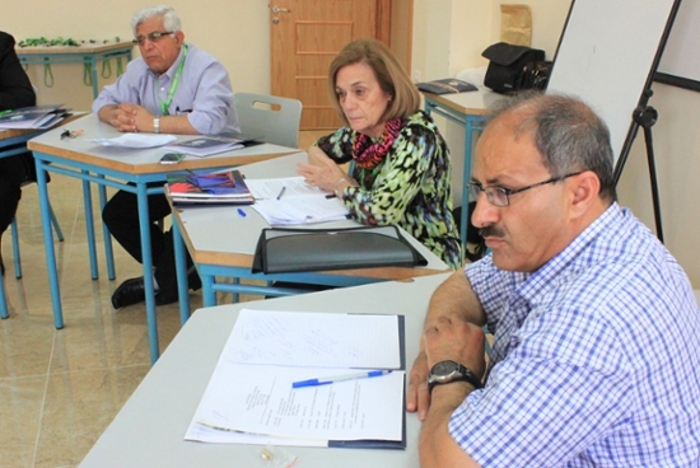University’s Senior Fellow for International, Civic and Cultural Projects Travels Worldwide to Promote Civic Engagement

Over the past three months, Sondra Myers has been in Rwanda, Palestine and Northern Ireland. That’s not unusual for this world traveler, who is also the University’s senior fellow for international, civic and cultural projects and the director of the Schemel Forum.
Along with her work on campus and in the local community, Myers maintains a busy schedule promoting democracy and civic engagement around the globe. She has conceived of and edited several publications on this subject and frequently offers presentations at conferences and roundtable discussions.
“What excites me most about my work is that becoming a citizen gives you enormous power. It is your government – your responsibility – and it sustains democracy. So, it’s a win-win. Your having civic power makes it – virtually turns your country into – a democracy,” Myers said. “Democracy is not sustainable without citizens. Civil society – engaged citizens and their organizations – are essential in a society which is committed to government of the people, by the people and for the people.”
This past summer Myers released a handbook, “The New Rwanda II: Successes and Challenges on the Ground.” It is a sequel to her 2010 publication, “The New Rwanda: Prosperity and the Public Good.”
Her first book has been used widely in the country over the past several years, and Myers expects the sequel will be as well. In July, she spent a week in Rwanda to launch the collection of essays, speaking to educators, government agencies and nonprofit organizations.
“I had been going to Rwanda frequently to follow up with the use of the (first) handbook,” Myers said. “Over the course of my visits, I aw many things happening on the ground that were very promising.”
Progress in the country in areas like health care, education and technical innovation inspired Myers to create a second handbook that celebrates those successes.
Earlier this summer, Myers and Harold Baillie, Ph.D., the University’s former provost and senior vice president for academic affairs, attended a roundtable discussion at Bethlehem University in Palestine with professors and administrators from several academic institutions there.
“We talked about curricular and extracurricular approaches to strengthening democracy and civic culture. Though they were in a tough situation that erupted violently soon thereafter, the participants showed great interest in modernizing curriculum and academic practices, making the classrooms more participatory as an approach to preparing students for active and engaged citizenship,” Myers said. “It was an important experience for me to see the moderation and focus on modernizing education that was expressed at the table.”
The integration of civic engagement in higher education was also the focus at a conference in Belfast, “Higher Education for Democratic Innovation Global Forum 2014,” organized by The Council of Europe, the U.S. Steering Committee of the International Consortium for Higher Education, Civic Responsibility and Democracy, and Queen’s University. Myers was among roughly a hundred participants, mostly from Europe and the United States.
“The participants were talking about their institutions’ approaches to prepare students for active and engaged citizenship,” Myers said. “The focus was similar to that in Bethlehem, but the people there were more advanced in their efforts as they came principally from democratic countries. I found it reinforcing and affirming. I am definitely a part of the movement to ensure that university graduates know how to and why to become good citizens.”






